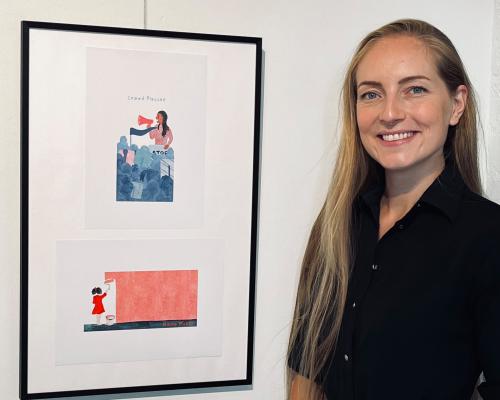
For some, childhood trauma provides the spur to later achievement. The computer scientist Stephanie “Steve” Shirley undoubtedly viewed herself this way. She had sworn “never, ever to be poor again”, and that hers should be “a life worth saving”.
Shirley, who has died aged 91, arrived in Britain as a child refugee from nazism at five years old. In the overwhelmingly male-dominated computer industry, she founded a company that pioneered outsourcing and opportunities for women, and reached a shareholder value of $3bn. Believing that “money that isn’t working has a kind of obscenity about it”, she became one of Britain’s foremost philanthropists, supporting research and practice in the care of children with autism.
A natural gift for mathematics led Shirley to a career in computing, when engineers and systems designers were first establishing that industry in the 1950s. At the time, women often had difficulty keeping their positions in the workplace after they married, and especially after they had children. Shirley married in 1959, and in 1962 she set up her own company, Freelance Programmers, to provide outsourced software development.
With only £6 of capital, she started the business from her kitchen table. She decided to recruit women such as herself, experienced and professionally qualified but spending their time at home with domestic responsibilities.
All they needed was a telephone, and a pencil and paper to draw flowcharts and write code. At first Shirley had an uphill struggle to win clients, but after she took to signing her letters of introduction as Steve instead of Stephanie, the work began to flow in.
Major clients included the Anglo-French partnership that developed the supersonic Concorde airliner, for which Shirley’s cottage industry workers programmed the black box flight recorder.
The company pioneered flexible working, all designed to suit the needs of female employees. In 1974 Shirley rebranded the company as F International (later the FI Group; it eventually became Xansa), the F not only for freelance, but for also flexible and free. Of its first 300 employees, only three were men; but after the introduction of the Sex Discrimination Act in 1975, she recruited men and women equally.
Although Shirley stepped down as chief executive in 1987, she remained the major shareholder until 1991. At that point she sold a controlling interest in the company to the staff: her proud claim was that she had made 70 of them into millionaires. With the flotation of the company in 1996, she too became personally wealthy, able to build up a substantial personal art collection – which she later gave away to charities. She was never interested in money for its own sake, and in the same year she set up the Shirley Foundation to support causes that she cared about.
The first of these was autism: her son, Giles, born in 1963, developed a severe form of the condition and died prematurely of an epileptic seizure in 1998. The second was information technology: Shirley provided the Worshipful Company of Information Technologists, a new livery company founded in 1980, with the means to acquire a permanent home in the City of London, and endowed the Oxford Internet Institute, founded in 2001, at the University of Oxford.
The many honours she received in her lifetime recognised not only Shirley’s success in business, but also the tens of millions of pounds she devoted to charitable causes.
She was born Vera Stephanie Buchthal in Dortmund, Germany, where her Jewish father, Arnold, was a judge. His wife, Margaret (nee Schick), was from Vienna.
As their lives became less and less secure under the Nazi regime, in 1939 the family took the agonising decision to send their two daughters, Vera and her elder sister, Renate, to Britain on the Kindertransport. The girls were fostered by a couple in Lichfield, Staffordshire, Guy and Ruby Smith, a time that Shirley remembered as happy and secure. Although the Buchthal parents eventually escaped to Britain, they separated after the war and the family was never fully reunited.
A self-confessed swot, Vera attended Oswestry girls’ high school, having to go to the local boys’ school for lessons in mathematics. At the age of 18 she was naturalised as a British subject and took the name Stephanie Brook. Being unaware of opportunities for girls to study the science subjects that interested her, she opted not to go to university, a decision she later regretted.
Instead she took a low-paid job (lower than if she had been a man) as a clerical officer at the Post Office Research Station in Dollis Hill, north-west London, carrying out mathematical work on a desk calculator. Over six years she managed to earn a mathematics degree through evening classes at the Sir John Cass Technical College, and was promoted to work on electronic computers.
In 1959 she married Derek Shirley, an engineer at Dollis Hill. For the next two years she worked for Computer Developments, a division of the British computer manufacturer ICL, where she managed her own team of software developers. However, she continued to feel disadvantaged by her gender, and decided to leave and set up her own company.
She headed the business while caring for her severely disabled son, and suffered a breakdown before she finally gained access to appropriate professional support.
The experience informed her choices as a philanthropist: she first set up a residential home for Giles and other young people with autism, and subsequently endowed further autism charities including the residential school Prior’s Court, in Berkshire, and the medical research organisation Autistica. She applied her business acumen to her philanthropic activities, never being satisfied just to give money away.
She was made a dame in 2000 and a companion of honour in 2017. A self-confessed workaholic, Shirley declared that “work is not just something I do when I’d rather be doing something else”.
Her autobiography, Let IT Go came out in 2012 and she took every opportunity, through interviews and public appearances, to present her experience as an inspiration to others. Many successful women downplay the struggles they have faced because of their gender, but Shirley was vocal about the sexism she had encountered.
Ambitious women have flat heads, she told the audience at a TED talk in 2015 “from being patted patronisingly”. It would have been many years, however, since anyone had dared to patronise Steve Shirley.
Derek died in 2021. Shirley is survived by her niece, Clare.
• Vera Stephanie “Steve” Shirley, computer scientist, businesswoman and philanthropist, born 16 September 1933; died 9 August 2025







